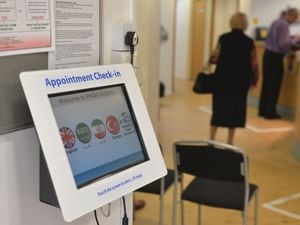Plea for Brexit deal on medicines amid shortage fears
Brexit could undermine the UK’s ability to prepare in the event of a Europe-wide pandemic, new research has found.

Brexit could result in medicine shortages and leave the UK out of EU strategies to tackle large-scale epidemics if no trade deal on pharmaceuticals is reached, according to a new report.
Research by the Association of the British Pharmaceutical Industry (ABPI) and the BioIndustry Association (BIA) found that if the UK fails to secure a deal, public health could be at risk.
In the report titled Public Health and Economic Implications of the United Kingdom exiting the EU and the Single Market, the ABPI and BIA looked at the possible consequences of Europe and the UK no longer co-operating at current levels.
The UK could face long delays on exchange of information if it opts out of the current regulatory framework, the report said.
It found that information sharing on “signals” – the possible link between a drug and adverse side effects – could be delayed by up to five months, delaying the revision of public safety information.
The EU would also be adversely affected by the lack of a deal, as the UK has the highest number of centres devoted to monitoring and improving the use of medicine on a population-wide basis.
Until now, the UK has been part of the EU Regulatory Network Incident Management Plan – the system used to manage continent-wide public health crises such as the Zika virus.
If the UK were to exit the plan, which is used on average nine to 10 times a year, it could cause delays in action as it is forced to wait for data, or a split between standards and procedures in the UK and those of the rest of the EU.
Withdrawal from the plan could also affect the availability of vaccines and negatively impact the monitoring of medicines administered across populations in the event of a pandemic, the report said.
Further risks include medicine shortages if the UK leaves the single market without a deal, as 45 million packs of medicine go from the UK to the EU each month, with 37 million packs coming the other way.
The biggest risk to the EU is shortages of medicines using human blood or plasma – for example drugs for haemophilia or immune diseases – as these products are “disproportionately” manufactured or imported via the UK.
It also jeopardises the supply of medicines coming from outside the EU, as the UK has the highest number of sites certified to import pharmaceuticals from “third countries” apart from Germany, the report found.
Under current regulations, products from designated third countries can be immediately dispatched to the EU through the single market and the customs union.
The administrative burden created by the lack of a trade agreement on pharmaceuticals, that would also be subject to tariffs, could also cause custom delays and increase costs, the research said.
In a speech to the House of Commons Health Select Committee, Steve Bates, chief executive of the BIA, urged the Government and EU to “safeguard public health in the UK and Europe by making the regulation and supply of medicines the first priority in phase two of Brexit talks”.
Mr Bates said: “The complex issues surrounding medicines regulation and supply chain need to be front and centre in the second phase of talks, and industry needs a realistic transition period to ensure that the supply of life-saving and life-extending medicines to patients in the UK and across Europe is not affected.”
Mike Thompson, chief executive of the ABPI, said in a statement: “A swift cooperation agreement between the EU and the UK on medicines is the only way to ensure that there is no disruption to 500 million patients accessing the best possible health care and getting the medicines they need.”





